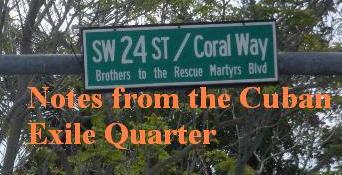True knowledge gives a moral standing and moral strength. - Mohandas Gandhi
On the same day that Los Van Van, a well known Cuban band inside the island and cultural ambassadors of the regime holds a concert in Miami, it seems an appropriate time to reflect on the blacklisted musicians that have suffered censorship and marginalization in Cuba. It is important to contrast the day to day reality of life in a free society where errors are made and passions can blind but can be corrected with that of a totalitarian state where one must submit and defend the indefensible or take the brave step of becoming a dissident and risk becoming a prisoner of conscience or defect and go into exile.
There are dire consequences to life under totalitarianism and it impacts everything including music according to the book Shoot the singer!: music censorship today edited by Marie Korpe there is increasing concern within the international music community that post-revolution generations are growing up without knowing or hearing these censored musicians and that this could lead to a loss of Cuban identity in future generations.The phrase cultural genocide is used to describe the "cultural revolution" of the 1960s and 1970s that blacklisted and censored scores of musicians and artists. The following is the continuation of a modest attempt to identify some of the victims of this process that has damaged and continues to damage Cuban culture and Cubans.

Celia Cruz
Celia Cruz born in Havana, Cuba as Úrsula Hilaria Celia de la Caridad Cruz Alfonso was one of the most successful Salsa performers of the 20th century, with twenty-three gold albums to her name. She was renowned internationally as the "Queen of Salsa" as well as "La Guarachera de Cuba". She spent most of her career living in
"While the death of salsa singer Celia Cruz was reported prominently in newspapers across the world, the news got scant and somewhat bitter treatment Thursday in the official media of her homeland. The Cuban Communist Party newspaper Granma reported Cruz’s death in a tiny, two-paragraph story published low on page 6 of the eight-page edition." [...] Cuban officials reportedly refused her request to visit her dying mother. “She always said that they didn’t let her see her mother when she was dying,” Soriano said, “and now she (Cruz) died without ever getting her fondest wish, which was to see this house again one day.”

Paquito D’Rivera
Paquito was a child prodigy. He started learning music at the age of 5 with his father Tito Rivera, a well-known classical saxophonist and conductor in
Arturo Sandoval is a jazz trumpeter and pianist. He was born in Artemisa, in






This is truly a shame that these wonderful musicians aqre being threatened with ucedmisalig. Its truly unfortunate when beautiful artists get mistreated like this...
ReplyDelete